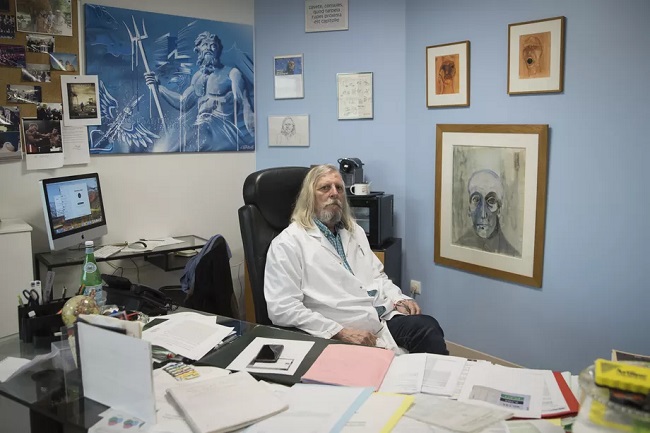
Prevention is a vaccine which we do not have. BUT we’ve got the next best thing and that is a cure. As usual we got there first and on these pages, before the pills were sucked up we told you what to get. If you were not listening that,s on you. i did my job!
Antiviral Activity of Chloroquine against Human Coronavirus OC43 Infection in Newborn Mice▿
Abstract
Until recently, human coronaviruses (HCoVs), such as HCoV strain OC43 (HCoV-OC43), were mainly known to cause 15 to 30% of mild upper respiratory tract infections. In recent years, the identification of new HCoVs, including severe acute respiratory syndrome coronavirus, revealed that HCoVs can be highly pathogenic and can cause more severe upper and lower respiratory tract infections, including bronchiolitis and pneumonia. To date, no specific antiviral drugs to prevent or treat HCoV infections are available. We demonstrate that chloroquine, a widely used drug with well-known antimalarial effects, inhibits HCoV-OC43 replication in HRT-18 cells, with a 50% effective concentration (± standard deviation) of 0.306 ± 0.0091 μM and a 50% cytotoxic concentration (± standard deviation) of 419 ± 192.5 μM, resulting in a selectivity index of 1,369. Further, we investigated whether chloroquine could prevent HCoV-OC43-induced death in newborn mice. Our results show that a lethal HCoV-OC43 infection in newborn C57BL/6 mice can be treated with chloroquine acquired transplacentally or via maternal milk. The highest survival rate (98.6%) of the pups was found when mother mice were treated daily with a concentration of 15 mg of chloroquine per kg of body weight. Survival rates declined in a dose-dependent manner, with 88% survival when treated with 5 mg/kg chloroquine and 13% survival when treated with 1 mg/kg chloroquine. Our results show that chloroquine can be highly effective against HCoV-OC43 infection in newborn mice and may be considered as a future drug against HCoVs.
